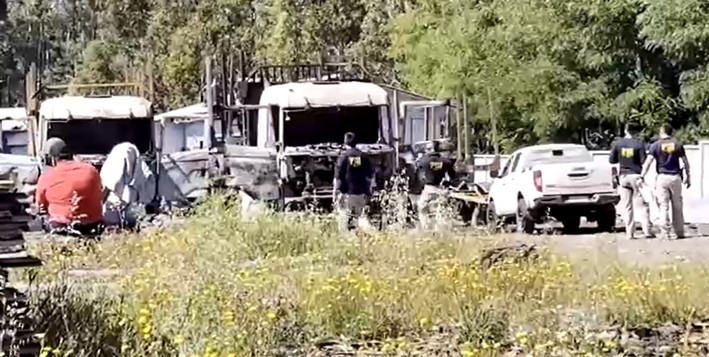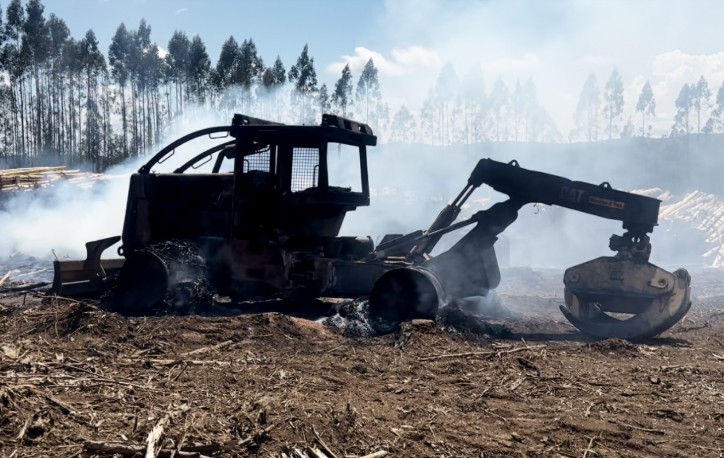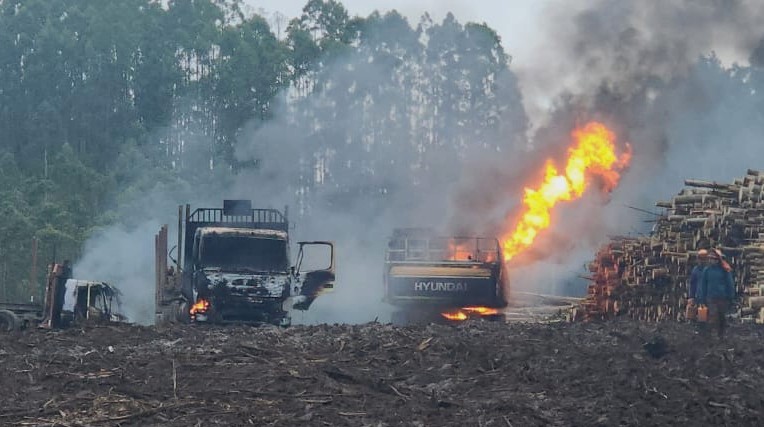Acoforag: "The Forestry Sector is Experiencing a Perfect Storm"
The manager of the Association of Forestry Contractors (Acoforag), René Muñoz, warned of a critical scenario for the Chilean forestry industry following the implementation of a 10% tariff on exports to the United States, which affects almost all shipments in the sector.
In a conversation with Radio Sago de Osorno, Muñoz explained that the tax amounts to 120 million dollars annually, considering that forestry exports to the North American market total around 1.2 billion dollars. "It's another blow that had been announced a long time ago and is now being realized," he stated, adding that the measure creates additional pressure on a sector already facing a complex situation.
Declining international prices and closure of sawmills
The leader detailed that pulp prices remain "very low," hovering around 500 dollars per ton, which is only a third of their value from a year ago. This has drastically reduced timber purchases and affects both large companies and small contractors and local sawmills, who are finding it difficult to place their products in the domestic market.
"Everything is very deteriorated. The national market is limited, and in five years, 169 formal sawmills have closed. SMEs suffer the greatest impact, as they lack the financial backing to withstand it," he asserted.
A cocktail of pressures on SMEs
Muñoz warned that the combination of new labor regulations, such as the 40-hour workweek or pension increases, along with rural violence, forest fires, and loss of assets, creates "a perfect storm" for the industry. "Large companies can diversify, but contractors and small sawmills are being suffocated," he explained.
The Acoforag manager insisted that the forestry sector remains strategic for Chile, both for its contribution to regional employment and its role in the 2050 carbon neutrality goal. "60% of what is absorbed is done by trees. Without forests, we cannot achieve carbon neutrality," he emphasized.
Likewise, he stressed the urgency of resuming reforestation, which years ago reached between 30 and 40 thousand hectares annually and is now far below that. "We need to start planting again and recover eroded soils. But none of that will be possible without security and legal certainty," he warned.
Complex social perception
The leader also addressed the tense climate surrounding the sector, marked by environmental criticisms and media cases that associate forestry companies with community conflicts. "In the end, it's as if the forestry companies are the villains. But the country needs the forest," he emphasized, calling for a balanced perspective in the debate.
For Muñoz, the future of the activity will depend on political decisions in the coming months and on the State recognizing the strategic nature of the sector. "We are at a turning point. The world needs fiber, and Chile has the resource, but without security and investment, there will be no development," he concluded.









